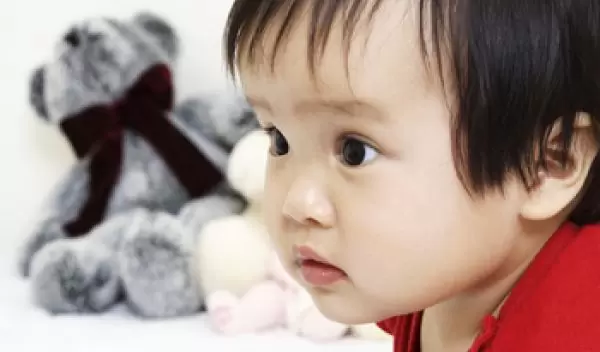
Baby biases
The following is part four in a series of articles titled "Amazing Discoveries About How Infants Learn," describing how infants acquire knowledge and what influences their social and thinking skills as they mature. Parts one, two and three are available on the NSF website.
Though it may not always be obvious, babies frequently make social decisions about other people. They prefer some people over others. They like people who are similar to them, such as speakers of the same language. And they are drawn to social individuals over antisocial ones.
Infants’ social decisions result from constant evaluations linked to learning, which makes a recent finding by Yale University’s Karen Wynn and Kiley Hamlin, now with the University of British Columbia, so remarkable.
Wynn and Hamlin wanted to know whether infants' social preferences influenced their learning. Through their research, they found evidence that some babies favor "mean" people who mistreat others, so long as the mistreated individuals do not share the baby’s food preferences.
In research funded by the National Science Foundation's Social, Behavioral and Economic Sciences Directorate and published in the journal Psychological Science, Wynn, Hamlin and their colleagues introduced 9- and 14-month-old babies--200 in all--to puppets. One puppet showed the same food preference as the baby being tested. Another displayed a different food preference.
The babies then saw the food-preference puppets play with a rubber ball, alongside two more puppets--a helpful one that would pick up the ball and return it when it was dropped and a mean one that would steal the dropped ball. When the researchers offered the puppets to their test subjects to see which they preferred when it was interacting with the one that shared their food preferences, most babies of both ages chose the helpful puppet, reaching toward it.
But when it came to interacting with the puppet that did not share their food tastes, the babies preferred the mean puppet.
"They like someone mean if the mean one's acts target someone who doesn't share their food preference," Hamlin said. She described the babies' behavior as "akin to the enemy of my enemy is my friend."
The results, said Wynn, do not necessarily imply that babies are born with a mean streak.
A 2012 CBS "60 Minutes" segment called "Babies Help Unlock the Origins of Morality" featured the research, as well as work from Wynn and Hamlin that touches on a fundamental question about human beings: whether all biases are learned, or whether humans could be born with some basic ones.
Working with even younger infants, aged 3 months, the researchers set up a different experiment. The babies were shown a large picture of a hill, which a red circle with a pair of googly eyes glued to it tried to climb. At that point, another googly-eyed character appeared: either a triangle that would help the circle up the hill, or a square that would push it back down.
By measuring how long the young infants looked at the triangle versus the square, the test determined that the babies preferred the helpful character over the one that hindered the circle. The study concluded that the capacity to evaluate others on the basis of their behavior--in this case, whether they were helpful or harmful--is an inherent part of social cognition.
Wynn says it's possible that humans are born with an innate sense of right and wrong. "At a very elemental level, I think so," she said.
But it's an area where experimentation is still ongoing--young infants that can only provide limited feedback are difficult to evaluate--and researchers continue to ask questions about what's inborn and what's learned.
"There is evidence that infants interact differently depending on what they've seen," said Laura Namy, a Developmental and Learning Sciences program director at NSF. "But we don't really know why. That infants are drawing conclusions about moral values seems like the most straightforward explanation for their subsequent behavior, but there may be other explanations."
